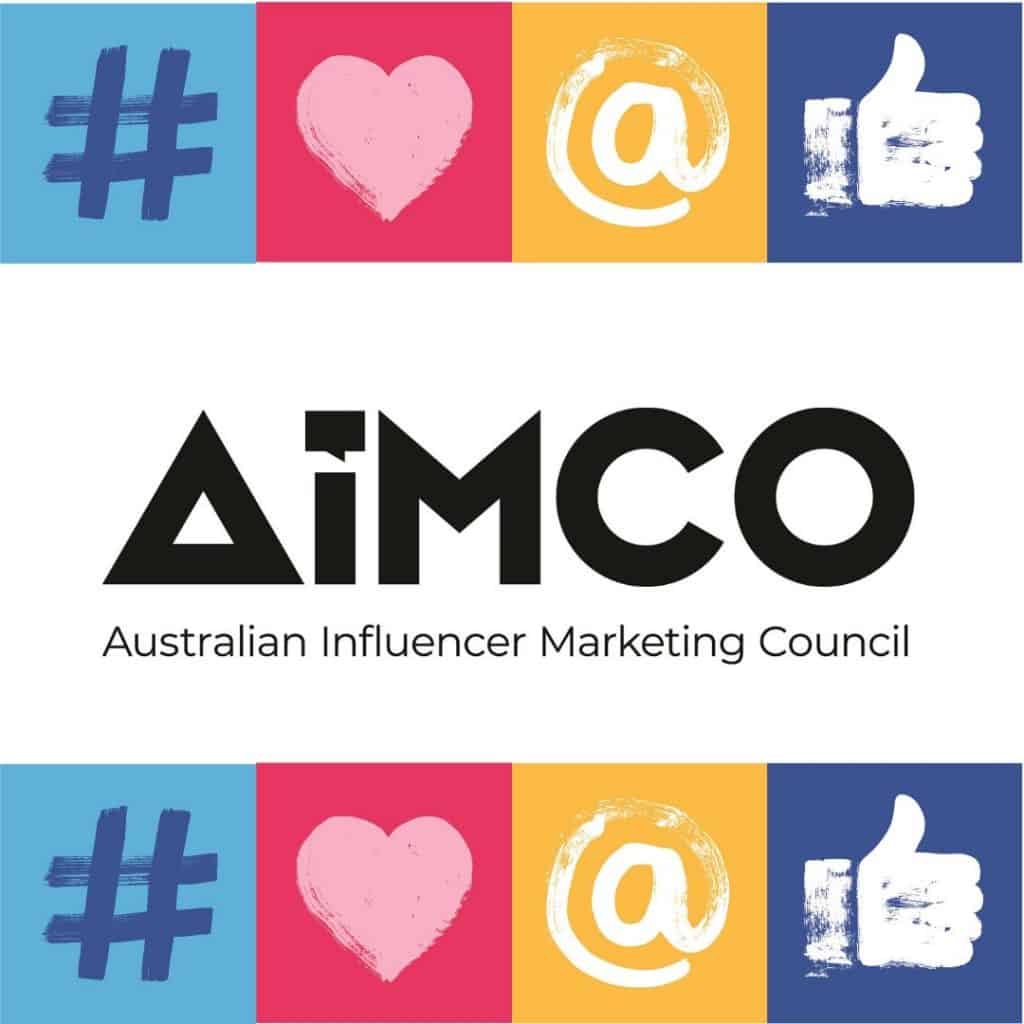New Influencer Marketing guidance in Australia
In a big step towards increasing confidence and trust in influencer marketing, the Australian Influencer Marketing Council (“AIMCO”) has today launched the Australian Influencer Marketing Code of Practice (“the Code”). Social Law Co. is proud to be founding member of AIMCO, and along with a number of the other founding members, was involved in the development of the Code.
What is AIMCO?
AIMCO is an alliance of Australian companies engaged in influencer marketing working together to elevate best practice to address industry trust and transparency issues.
What is the Australian Influencer Marketing Code of Practice?
The Code provides guidance to businesses engaging in influencer marketing. It covers:
- Transparency regarding influencer vetting;
- Brand safety;
- Advertising disclosure requirements under the Australian Consumer Law (“ACL”);
- Ensuring appropriate briefs and contracts;
- Importance of addressing IP rights within contracts; and
- Metrics and reporting transparency.
The Code recognises and aligns with the codes and standards of other relevant industry bodies, including the AANA Code of Ethics and recognises the need for the industry to consistently address the legal requirements relating to advertising under the ACL and its enforcement through the Australian Competition and Consumer Commission (“ACCC”).
Who does the Australian Influencer Marketing Code of Practice apply to?
The Code applies to anyone working in the Australian influencer marketing space and intends to provide best practice guidance to the industry, introduce greater consistency around language and behaviours and guide advertisers and marketers on best practice when engaging in an influencer marketing campaign.
Where can I view a copy of the Australian Influencer Marketing Code of Practice?
You can view a full copy of the Australian Influencer Marketing Code of Practice here.
Why has the Australian Influencer Marketing Code of Practice been released now?
The Code was developed through industry consultation commencing in May 2019. The Code sets a framework to guide any business wanting to engage with greater trust and confidence. With the impact of COVID-19 on the advertising industry, transacting with trust has never been more important.
Does the Australian Influencer Marketing Code of Practice clarify when advertising disclosure is required?
Yes. The Code provides that advertising disclosure is required when there is a contracted engagement, which includes any verbal recording, email documentation, digital or other document that defines an engagement between an influencer and a brand. Note that it specifically includes any transaction with financial payment as well as value in-kind, gifts and / or free products. The advertising disclosure requirement also applies to affiliate marketing engagements.
What form should the disclosure take?
If disclosure tools are available through the platform (for example the paid partnership functionality in Instagram), then they should be used to disclose the nature of the advertisement. For platforms using hashtags, the Code states that the minimum disclosure requirement is to use #Ad or #Sponsored, particularly where platform tools are not otherwise available to make the paid nature of the post clear. Additional brand requested hashtags can be used in addition to the minimum disclosure requirements set out above, but should not be used instead of them. These include hashtags such as #brandname or #ambassador.
The Code also sets out specific requirements for where short form and long form videos are used in campaigns and how disclosure should take place in respect to those.
The advertising declarations must be easy to understand, unambiguous and timely. The Code provides some specific guidance around what is / is not appropriate in this regard at section 2.5. Some of these include that the disclosures should be placed with the content and not just in the personal profile, it should not be abbreviated (i.e. #spon, #sp), it must be included in the first appearance of the content and any subsequent appearance and that it must be visible to the consumer on first view and not mixed with a group of hashtags.
Under the Code, when is advertising disclosure not required?
The Code provides that the only time advertising disclosure is not required is when there is no contracted engagement or the brand has no input or control over the influencer content or outcome. Even in those cases, the Code confirms that it is best practice to include reasonable disclosure in the content, such as #FreeGift.
Does the Code recommend creating an Influencer Agreement?
The Code states that it is recommended that a valid and binding contract be entered into between the brand / intermediary and the influencer for each influencer marketing campaign. Under the Code, the Influencer Agreement should cover intellectual property rights, reputation and brand safety, legal or industry code compliance, remuneration, services and deliverables, approvals process and exclusivity.
How do I go about creating an Influencer Agreement which conforms with the Australian Influencer Marketing Code of Practice?
Contact us for drafting of a new influencer agreement or to review any existing influencer agreement to ensure that it covers the Australian Influencer Marketing Code of Practice recommended issues.
You can also download a FREE copy of our Influencer Agreement checklist here.
For further information about complying with the australian influencer marketing code of practice, contact us.
Information contained within this blog post is intended to be general information only and is not in any way intended to constitute legal advice. You should not act or rely on any information found in this blog post without obtaining prior advice specific to your circumstances.




